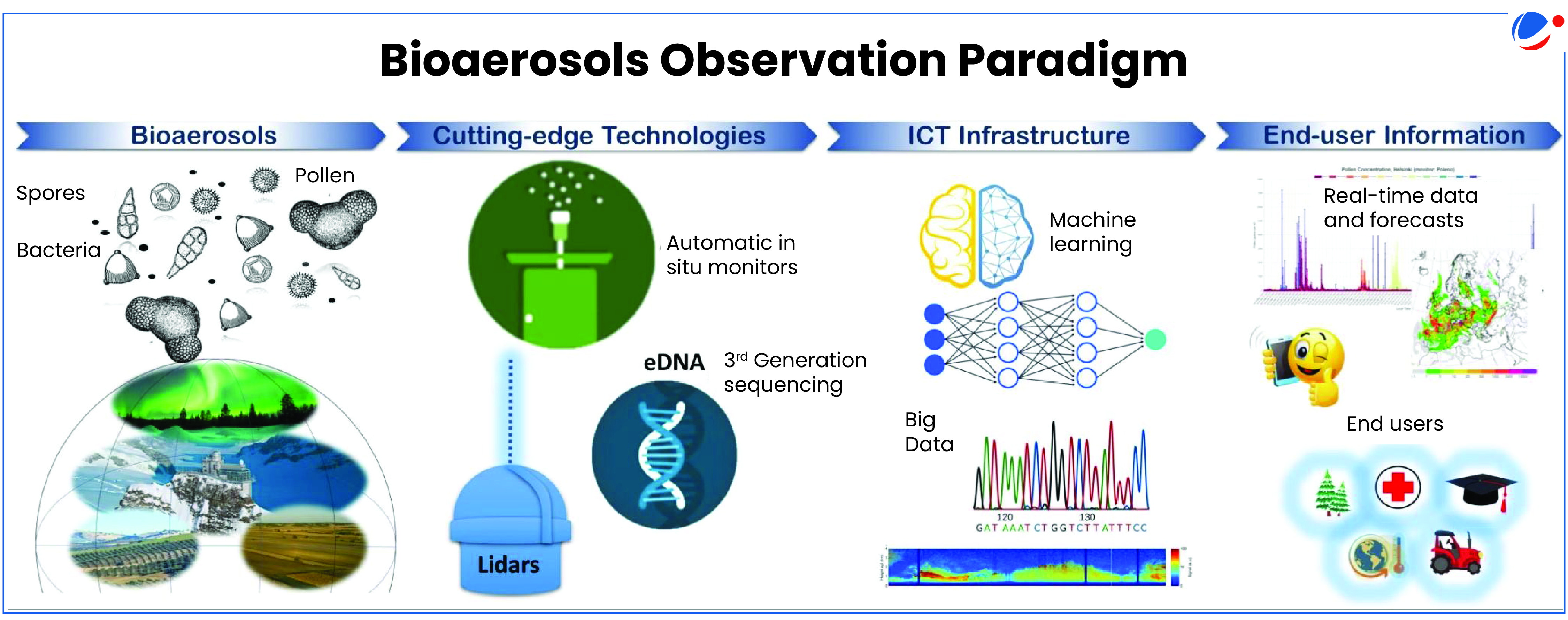The Climate Bulletin reports on the state of air quality and its connections to climate change.
Key findings
- Global PM2.5 concentrations: Europe and China show lower PM2.5 pollution, while North America and India see increased emissions from anthropogenic activities.
- Particulate Matter smaller than 2.5 micrometers in diameter is referred to as PM2.5.
- Global PM hotspots: Include agricultural areas in Central Africa, Pakistan, India, China and South-East Asia.
- Impacts of PM on crops: Reduces crop yields by 15% as it reduces sunlight reaching leaf surfaces.
- Aerobiology Advancements: New technologies have enabled real-time bioaerosol monitoring.
About Aerobiology
- Aerobiology is the study of the movement and impact of airborne biological particles, or bioaerosols, on human, animal, and plant health. Bioaerosols include:
- Bacteria, fungal spores, pollen grains, viruses, etc.
- Bioaerosols reflect changes in biodiversity, plant flowering patterns, and distribution, all sensitive to climate shifts.
- Hence, new technologies are needed to improve understanding of Bioaerosols which would further enhance forecasting and climate change impact assessments.
- New observational techniques: Such as high-resolution image analysis, holography, multi-band scatterometry, fluorescence spectrometry and nanotechnology for DNA sequencing.







